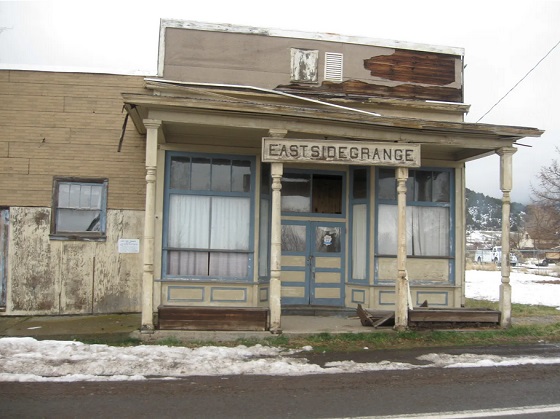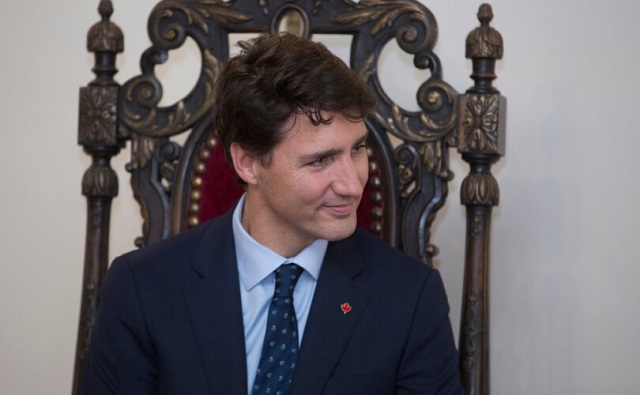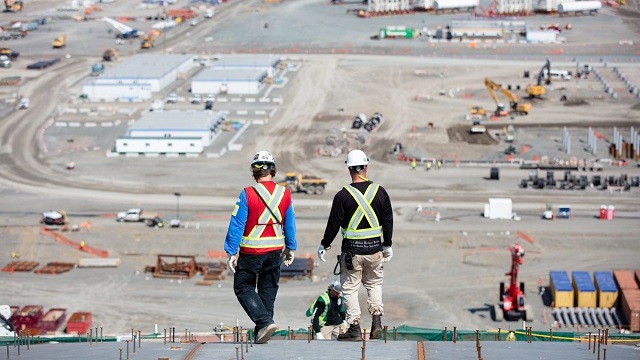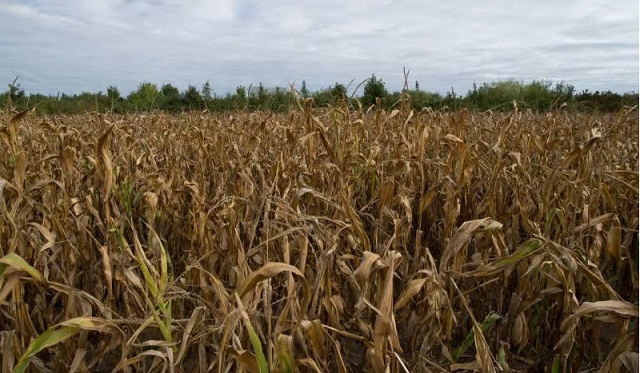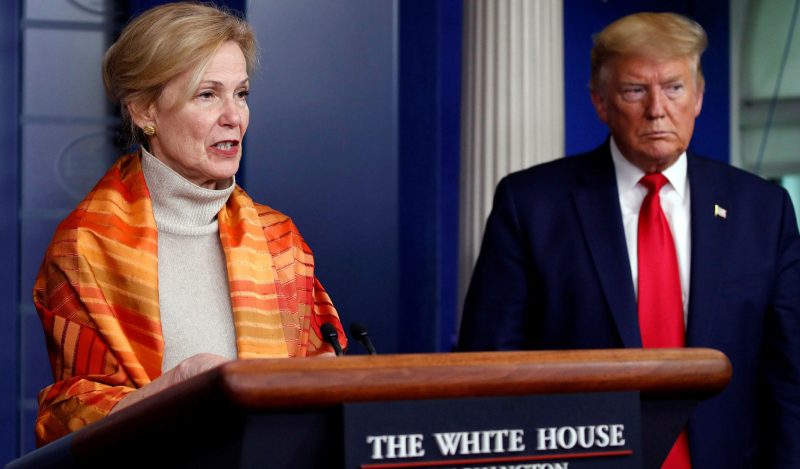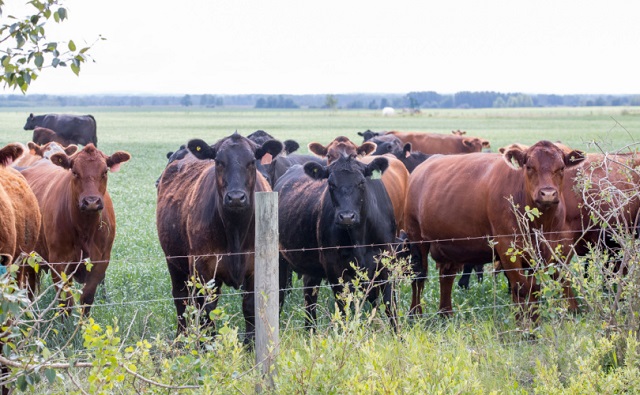Uncategorized
NZ leader vows to deny accused mosque gunman notoriety

CHRISTCHURCH, New Zealand — New Zealand’s prime minister declared Tuesday she would do everything in her power to deny the accused mosque gunman a platform for elevating his white supremacist views, after the man dismissed his lawyer and opted to represent himself at his trial in the killings of 50 people.
“I agree that it is absolutely something that we need to acknowledge, and do what we can to prevent the notoriety that this individual seeks,” Prime Minister Jacinda Ardern told reporters. “He obviously had a range of reasons for committing this atrocious terrorist attack. Lifting his profile was one of them. And that’s something that we can absolutely deny him.”
She demurred about whether she wanted the trial to occur behind closed doors, saying that was not her decision to make.
“One thing I can assure you — you won’t hear me speak his name,” she said.
Later, in a passionate speech to Parliament, she urged the public to follow her lead and to avoid giving the gunman the fame he so obviously craves.
“I implore you: Speak the names of those who were lost, rather than the name of the man who took them,” she said. “He may have sought notoriety, but we in New Zealand will give him nothing, not even his name.”
The shooter’s desire for attention was made clear in a manifesto sent to Ardern’s office and others before Friday’s massacre and by his livestreamed footage of his attack on the Al Noor mosque.
The video prompted widespread revulsion and condemnation. Facebook said it removed 1.5 million versions of the video during the first 24 hours, but Ardern expressed frustration that the footage remained online, four days later.
“We have been in contact with Facebook; they have given us updates on their efforts to have it removed, but as I say, it’s our view that it cannot — should not — be distributed, available, able to be viewed,” she said. “It is horrendous and while they’ve given us those assurances, ultimately the responsibility does sit with them.”
Arden said she had received “some communication” from Facebook’s Chief Operating Officer Sheryl Sandberg on the issue. The prime minister has also spoken with British Prime Minister Theresa May about the importance of a global effort to clamp down on the distribution of such material.
Australian Prime Minister Scott Morrison also urged world leaders to crack down on social media companies that broadcast terrorist attacks. Morrison said he had written to G-20 chairman Japanese Prime Minister Shinzo Abe calling for agreement on “clear consequences” for companies whose platforms are used to facilitate and normalize horrific acts.
Lawyer Richard Peters, who was assigned to represent Brenton Harrison Tarrant at his initial court appearance on Saturday, told the New Zealand Herald that Tarrant dismissed him that day.
A judge ordered Tarrant to return to New Zealand’s High Court on April 5 for his next hearing on one count of murder, though he is expected to face additional charges. The 28-year-old Australian is being held in isolation in a Christchurch jail.
“He seemed quite clear and lucid, whereas this may seem like very irrational
Peters did not return a call from The Associated Press on Tuesday.
Peters told the paper that Tarrant didn’t tell him why he wanted to represent himself. He said a judge could order a lawyer to assist Tarrant at a trial, but that Tarrant would likely be unsuccessful in trying to use it as a platform to put forward any extremist views.
Under New Zealand law, a trial is “to determine innocence or guilt,” Peters said. “The court is not going to be very sympathetic to him if he wants to use the trial to express his own views.”
Ardern previously has said her Cabinet had agreed in principle on tightening gun restrictions in New Zealand and those reforms would be announced next week. She also had announced an inquiry into the intelligence and security services’ failures to detect the risk from the attacker or his plans. There have been concerns intelligence agencies were overly focused on the Muslim community in detecting and preventing security risks.
New Zealand’s international spy agency, the Government Communications Security Bureau, confirmed it had not received any relevant information or intelligence ahead of the shootings.
In Parliament on Tuesday, Ardern said there are justified questions and anger about how the attack could have happened in a place that prides itself on being open, peaceful and diverse.
“There are many questions that need to be answered and the assurance that I give you is that they will be,” she said. “We will examine what we did know, could have known or should have known. We cannot allow this to happen again.”
Meanwhile, Christchurch was beginning to return to a semblance of normalcy Tuesday. Streets near the hospital that had been closed for four days reopened to traffic as relatives and friends of the victims continued to stream in from around the world.
Thirty people were still being treated at the Christchurch hospital, nine of them in critical condition, said David Meates, CEO of the Canterbury District Health Board. A 4-year-old girl was transferred to a hospital in Auckland and is in critical condition. Her father is at the same hospital in stable condition.
Relatives of the dead were anxiously waiting for word on when they can bury their loved ones.
Police said they have completed autopsies on all 50 bodies and have formally identified 12 of them. Six of the identified victims have been returned to their families.
Islamic tradition calls for bodies to be cleansed and buried as soon as possible. Ardern has said authorities hope to release all the bodies by Wednesday.
Sheik Taj El-Din Hilaly, of Sydney,
Grieving residents of this close-knit city have created makeshift memorials near the mosques the killer targeted and at the botanical gardens, where a mountain of flowers has grown by the day.
Janna Ezat, whose son, Hussein Al-Umari, was killed in the Al Noor mosque, visited the memorial at the gardens and became overwhelmed by the outpouring of love.
She knelt amid the flowers and wept, grabbing at daisies and lilies as though she might find her boy in them.
Ezat is comforted by reports that Hussein confronted the killer, charging at him after surviving the first spray of bullets.
“I’m very happy. I’m wearing white. We normally wear black,” she said. “But he is a hero and I am proud of him.”
___
Associated Press writers Stephen Wright and Steve McMorran contributed to this report.
Kristen Gelineau And Juliet Williams, The Associated Press
Uncategorized
Tax Freedom Day – Canadian families face larger tax burden than last year
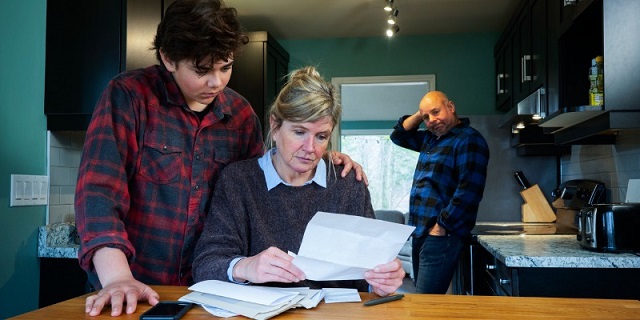
From the Fraser Institute
By Grady Munro and Jake Fuss
According to a recent poll, nearly half of all Canadians are living paycheque to paycheque. While inflation has cooled and the steep growth in grocery prices has abated, taxes remain the single largest expense for Canadian families, and their tax bill continues to rise.
Canadians pay many different taxes and it can be hard to know how much you pay in total. We pay income taxes, sales taxes, health taxes, payroll taxes, property taxes and many others as part of our total tax bill. But while some of these taxes are visible—for example, you can check your income tax return to see how much you pay in personal income taxes—many others are hidden.
To help Canadians understand how much they pay in taxes, each year the Fraser Institute calculates Tax Freedom Day—the day of the year when the average Canadian family has earned enough money to pay all taxes levied by the federal, provincial and local governments. In other words, if Canadians were required to pay all their taxes up front, each and every dollar they earned prior to Tax Freedom Day would be paid to the government.
In 2024, the average Canadian family (two or more people) earning $147,570 will pay an estimated $65,766 in total taxes—or 44.6 per cent of its income. So, if you paid all your taxes for 2024 up front, you would pay the government every dollar you earned until June 13. After working the first 164 days of the year for the government, you now get to work for yourself.
Arriving on June 13, this year’s Tax Freedom Day comes one day later than last year—meaning the average Canadian family must work one day extra to pay off its total tax bill—because while the average family saw its income rise by 3.1 per cent, its total tax bill rose by 3.9 per cent.
And all signs point to rising taxes in the future.
This year the federal government expects to run a $39.8 billion deficit. Moreover, cumulative provincial deficits are projected to equal $30.1 billion, meaning total federal/provincial government debt is expected to increase by $69.9 billion in 2024/25. Future generations of Canadians will undoubtedly face tax increases to pay off this debt and few governments are demonstrating any fiscal restraint. Several governments (notably the federal government) have no plans to balance their budgets in the foreseeable future.
To help illustrate the size of the debt burden we’re passing on, we also calculate a Balanced Budget Tax Freedom Day, which reveals the hypothetical tax burden on Canadians if governments across the country had to raise taxes today to balance their budgets. This year, Balanced Budget Tax Freedom Day would arrive on June 23—10 days later than Tax Freedom Day.
With Tax Freedom Day falling one day later than last year, the burden of taxation is increasing for Canadian families. Unfortunately, governments are demonstrating little to no fiscal restraint, meaning Tax Freedom Day will likely arrive later in years to come.
Authors:
Uncategorized
Inner city shoplifting and Manitoba Premier Wab Kinew
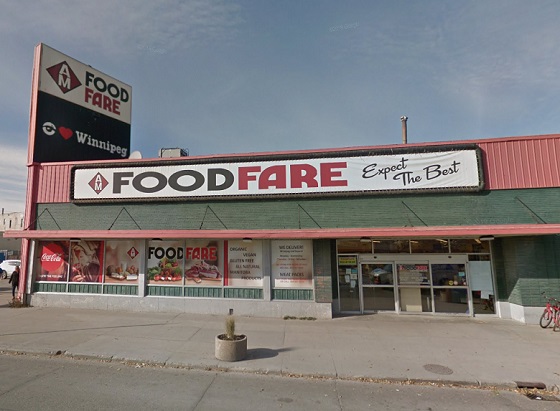
From the Frontier Centre for Public Policy
This problem is only made worse by gullible writers and politicians who make excuses for the thieves. Their excuse is that these people are disadvantaged, so they are less than fully responsible for their criminal conduct. Some sympathetic souls go even further, and suggest that these indigenous shoplifters are simply taking back what is rightfully theirs as “reparations” because the shop owners are on “stolen land”.
Winnipeg, Manitoba is being hit with an epidemic of shoplifting that appears to be out of control. Thieves openly steal expensive items, such as frozen meat, from inner city food stores. Shelves are stripped bare in what are more accurately described as robberies than shoplifting. Victims describe brazen thefts by entitled thieves who become indignant when caught in the act. One store employee, who tried to stop a theft, was told “You are on Treaty 1 territory”. The stores that are hardest hit are often owned by immigrant families who have worked very hard to build their modest businesses. Some have had to close, as a result of the unchecked criminality, and others will follow.
Police protection is weak. Even in rare cases where culprits are caught and prosecuted, sentences are minimal.
The problem of brazen theft from Winnipeg liquor stores reached such a serious level in the recent past that customers at urban liquor stores in Manitoba are now allowed to enter the store only after lining up single file, and producing identification. Liquor prices have risen as a result, because special government employees must be hired to sit at the door to inspect ID’s. Customers must line up outside, even on the coldest winter days, because freeloaders choose to steal liquor. And everyone – including the police – are too shy to confront the robbers.
Other western cities, such as Regina, Saskatoon and Thunder Bay are having similar problems. Even small cities, such as Wetaskiwin, Alberta, are hard hit.
The common element is that all of these cities and towns have significant indigenous populations who migrated to the cities from largely dysfunctional reserves, where attitudes of dependency, entitlement and victimhood prevail. Most arrive poorly educated, with few job skills, but with an expectation that they will be provided for. They proceed to live rough lives on the mean streets of these cities. Many drift to shoplifting and other crime. The inner city thieves are disproportionately from this demographic.
This problem is only made worse by gullible writers and politicians who make excuses for the thieves. Their excuse is that these people are disadvantaged, so they are less than fully responsible for their criminal conduct. Some sympathetic souls go even further, and suggest that these indigenous shoplifters are simply taking back what is rightfully theirs as “reparations” because the shop owners are on “stolen land”. They argue that these indigenous people are victims of a system that gives them no chance to succeed, or that they are suffering from the “intergenerational trauma” presumably caused by the fact that 1 in 6 indigenous children attended residential schools in the past.
The shoplifters readily adopt these excuses, and claim to be victims of “systemic racism”.
But, wait a minute! Isn’t the Premier of Manitoba, Wab Kinew, indigenous? Isn’t he a successful, law-abiding person? And wouldn’t most indigenous Canadians laugh at the idea that they had to steal to survive? How is it that Wab Kinew, and the many other successful indigenous Canadians manage their lives just fine while the shoplifters cannot?
The answer is that Wab succeeded the way all successful people do. He went to school, worked hard, and went where the jobs are. He was fortunate to have competent, caring parents who understood the importance of education and hard work. His parents also understood that assimilation (or, if you prefer, integration) was essential for their son to succeed. Wab’s father had a rough time in residential school, but used what he learned to raise a son who has become a provincial premier.
The fact that Kinew is fully assimilated does not prevent him from celebrating his indigenous heritage. Recently, a video of him energetically performing a prairie chicken dance went viral. It showed indigenous youth that they too can be both successful Canadians – and proudly indigenous – at the same time.
It is clear from watching him dancing so vigorously that he would have been a formidable warrior in pre-contact indigenous hunting culture. Colonialism ended that possibility. But it is equally clear that he, and the other indigenous people who were willing to learn the new ways, received a lot in return from the settlers. He is now an articulate, literate, thoroughly modern man, thanks to “settler colonialism”. Colonialism has also given him an expected lifespan more than double that of yesterday’s hunter-gatherers. Colonialism gave at least as much as it took from him.
Kinew’s memoir, “The Reason You Walk” describes someone determined to live his life not as a victim, but as a confident indigenous Canadian.
He built his own life – making mistakes along the way – but learning from those mistakes, and is now the leader of a province – and lauded as a possible future prime minister. He offers no apologies to critics who suggest that an indigenous person who is successful is somehow “selling out” indigenous people. His famous reply to that old saw is “Aboriginal success is the best form of reconciliation”.
Don’t expect to find Wab Kinew stealing frozen hamburger from a Food Fare store anytime soon.
But here’s the lesson indigenous youth can learn from the example Wab Kinew, and other successful indigenous people have set: “If they can do it, so can you”. They should also tell the apologists who want to give them tired excuses – excusing theft as “reparations” for perceived past wrongs, or “intergenerational trauma” – that they, like Wab, refuse to live their lives as “victims”.
In short, the solution to the shoplifting problem is not to condone theft. It is not to treat criminals differently because they are indigenous. It is not to offer them excuses. The solution is to create more Wab Kinews.
And that’s up to Indigenous parents. No government can do that for them. For many families, like Wab’s, that will include the difficult decision to move from dead-end reserves. But if they have the same commitment to their children’s education and upbringing that Wab’s parents had there is no reason that they can’t raise successful children in this country.
Long before he became Manitoba’s premier, Wab Kinew, regularly entertained listeners on CBC Radio. He was a refreshing, common sense voice, and always refused to play the victim. He never failed to remind young indigenous people that Canada worked just fine for him.
And, with a bit of grit and hard work, it can work for them too.
Brian Giesbrecht, retired judge, is a Senior Fellow at the Frontier Centre for Public Policy.




